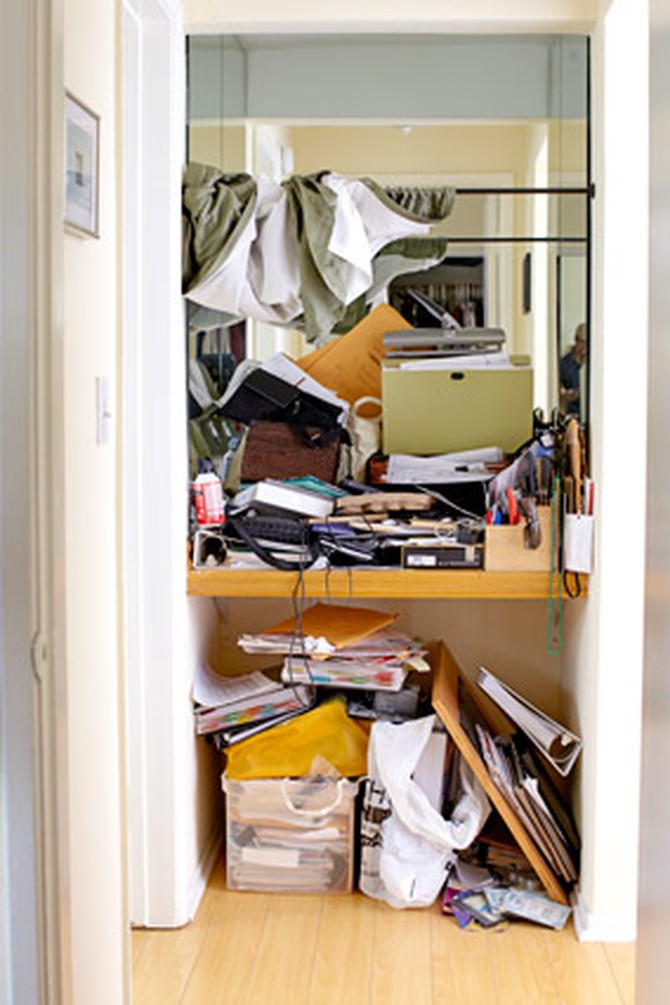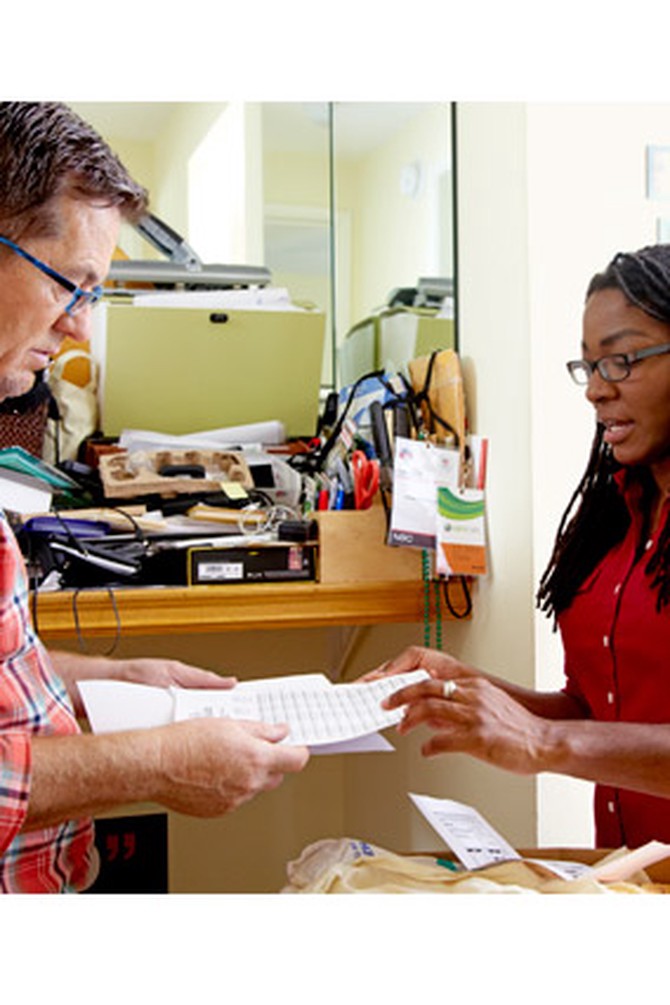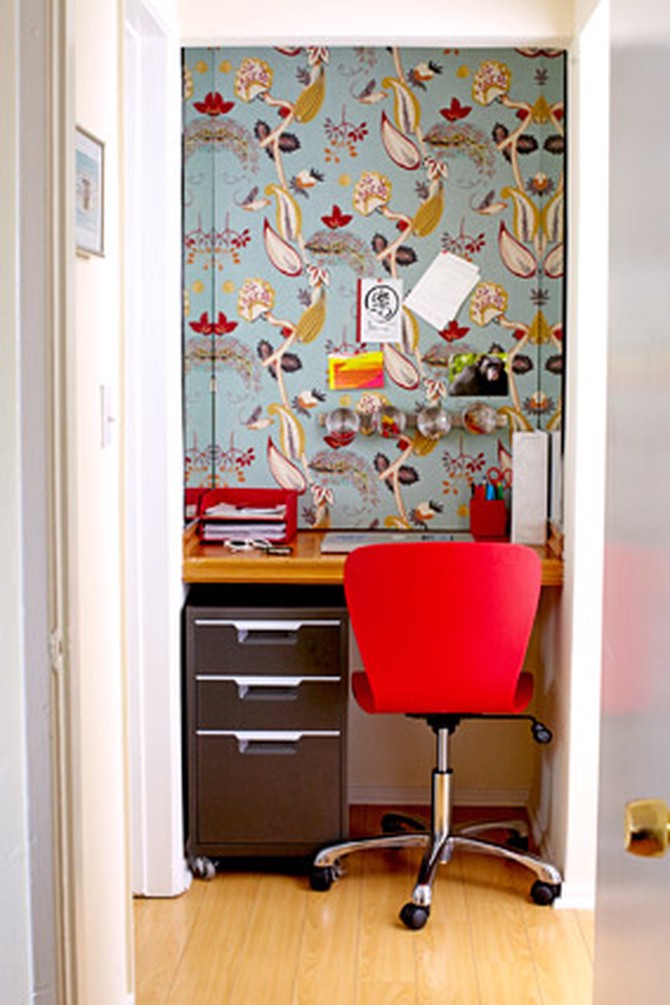Home Makeover: Your Hall Closet Vanity

Photo: David Tsay
A teetering pileup of binders, papers, gadgets, sunglasses, and miscellanea, all hidden from sight by a curtain.
The closet-shaped nook outside Dawn Bridgewater's bathroom was originally built as a mirrored vanity, complete with a large desk. But when Bridgewater, 37, an assistant director for films and commercials, moved into this motel-style apartment off Sunset Boulevard in Los Angeles, she didn't need extra storage for her toiletries—so she stashed mail on the "vanity" instead. Inevitably, it seemed an equally convenient repository for printer paper, cell phone chargers, wedding invitations, a three-hole punch, Mardi Gras beads, manuals for a Brita filter and a waffle maker, a New Kids on the Block 45, Bed Bath & Beyond bags, a Swiss army knife given to Bridgewater by Joan Jett on the set of The Runaways ("I did that movie just so I could hang out with her—15-year-old me was freaking out!"), and a yellow notepad on which she'd scribbled a script idea. Hyper-organized in her work life, Bridgewater hung a curtain to hide the mess, because "every time I went into my bedroom or bathroom I was shamed," she says.
The Fix
A clean, compact workspace for sorting mail and using the computer.

Photo: David Tsay
The Process
The duo begin with a typically Walshian purge, ruthless and efficient, narrated by gently barbing commentary. "How many lanyards does one person need?" Walsh asks incredulously, upon becoming entangled in ID passes for dozens of movie shoots. "For Halloween each year, I go as a roadie," explains Bridgewater. "Anyone has an '80s-themed party? I'm dressed as a roadie." Walsh stares at her, mouth agape, and drops the lanyards into the "trash" pile.
He's decreed that everything be sorted into banker's boxes labeled PERSONAL (taxes, apartment lease), DGA (pay stubs, call sheets), and OFFICE SUPPLIES (staplers, envelopes, stamps). But many items fit into none of these categories. "What is this?" Walsh asks at one point, holding aloft what looks to be a flat black change purse. "That's my executive lesbian fanny pack," says Bridgewater. "I wear it to concerts because—" "I've heard enough!" Walsh trills, dropping the fanny pack onto a pile of items bound for the bedroom closet. Meanwhile, an iPhone box, an old camera, and an address book that Bridgewater says dates to "before everyone had cell phones" are tossed in the trash. Soon the pair have filled four large garbage bags. "It's amazing how little useless stuff she has now!" says Walsh.

Photo: David Tsay
Next: Two more weird-space makeovers

